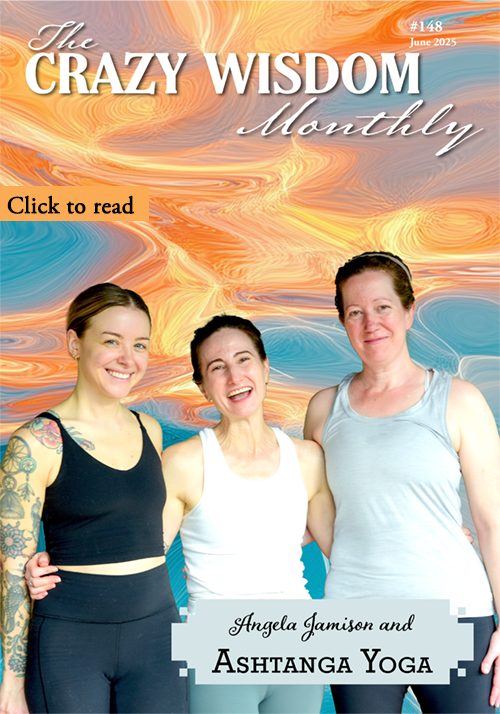By Marie Duquette
I still have the scar on my forearm from when I touched it to the edge of the oversized sheet pan after taking it out of the oven. It happened the first week I worked in a busy kitchen, one year ago. I wear it well.
At age sixty-three, after a lifetime of jobs that demanded my brains, wit, voice, compassion, and leadership, I jumped into the most physically demanding job of my life. I did not anticipate that this season of semi-retirement would include working with a dozen chefs in a busy kitchen. I did not imagine pouring off boiling water from heavy pots of pasta or using just one hand to transfer sheet pans of chicken breasts from the oven to the quick-cooler while my other hand was holding the door of the cooler open.
I imagined this season would continue my lifetime occupation of sitting at a desk, leaning heavily into my mind, my imagination, and my keyboard. I didn’t realize that this plan would come up short in compensation, in health insurance, in engagement with the world, or in the ways my body needed to move to be healthy.
For the last year, I have been working in a busy industrial kitchen where we make catering-sized trays of pulled barbecue, cashew chicken, and eggplant parmesan, among other things. We make four homemade soups daily, simmering the stocks all night long. We make our own salad dressings, pesto, and mayonnaise. We use an immersion blender the size of an upright vacuum cleaner. I walk an average of four miles per a six-and-a-half-hour shift, including up and down steel stairs that separate the front of the house from the back.
At Thanksgiving, we roasted 400 turkeys. We prepared, boxed, and delivered more than 200 feasts with a wide variety of side dishes.
We carried walkie-talkies on the two days those customers picked up their dinners, so that the front of the house could easily tell the back of the house which customer had arrived, and a runner could select their side dishes from refrigerated racks, box their full order, and rush it to them.
Everything in this kitchen is big. The steel pots in which I boil water for orzo, penne, and couscous hold forty quarts of water. The sheet pans are 13” x 18” and tall racks on wheels hold twenty pans each. The separated stainless sinks are bigger than the biggest bathtub I’ve ever seen.
Musical artist, Jason Isbell wrote, “Physical labor, manual labor – if you can stay close to those folks, there’s always plenty to write about, ‘cause their issues are the real issues.”
I was a pastor in the Evangelical Lutheran Church in America for twenty years, serving four congregations, in three separate states. In retrospect, the conversations I had in that profession seem too measured, too careful, more scripted than any I’ve had during my year with the chefs. In our kitchen, we listen to loud, raucous, often vulgar music. I use a chef knife to chop everything, no matter how small the dice. And as the day goes on, and chefs toss their black sauce-spotted aprons into the laundry can, I often find myself in conversations about real issues with the few who are left. We talk about work shoes and tattoos. We talk about health issues, the inadequacies of insurance, and the challenge of caring for extended family. We talk about grief and the way it shapeshifts but never completely goes away.
Six months into this job, I had to take several weeks off because of a cyst in the back of my left leg. I felt ashamed, as if this new condition was my fault for not being as fit as I was in the first half of my life. My leg felt like a saturated upright post on an old fishing dock—both painful and heavy to move. When I came in to tell my coworkers I needed some time off, they treated me like a family member they had known for a lifetime instead of a worker they had just recently met. And when I came back, they acted as if they had been waiting up all night for me to return.
My coworkers are immigrants, transgender, and gay. They are young couples with feisty children and seniors trying to make ends meet. They take short breaks to smoke, sitting on a milk crate against an outside wall of the kitchen. Many of them are bilingual. All of them are funny.
It is the most diverse community I have ever known.
Chef Dominique Crenn said, “Being a chef is about feeding people, which is part of the story of all humanity. And in all five versions of the story of the loaves and the fishes in the New Testament, Jesus responds to his disciple’s question about how to feed the throngs of people by saying, “You feed them.”
When I was a pastor, I talked a lot about building relationships, living in community, and feeding people. Now that I am an aging woman in a busy kitchen, I am the one being fed.
Marie Duquette is a writer and pastor in the Evangelical Lutheran Church in America (ELCA). Duquette has two grown sons; a partner whom she married in 2021, a cat named Picasso, and a dog named Nala. Contact her at marienduquette@gmail.com






























































































































































































This is the story of Margot, a recently rescued tuxedo cat, and how she curled up in my heart and broke it open.